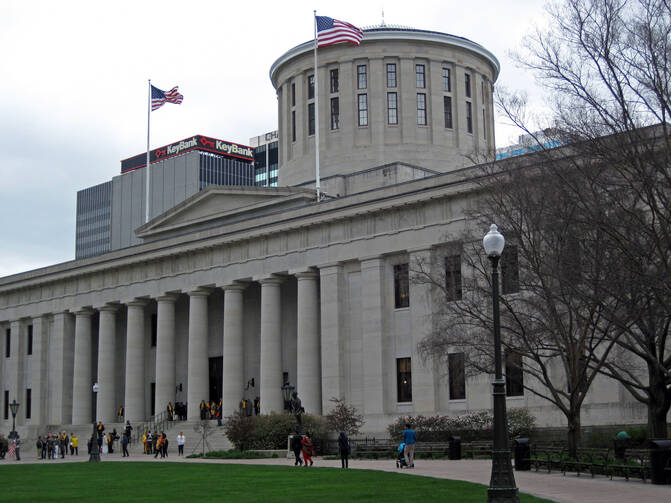COLUMBUS, Ohio (CNS) -- The Ohio House for the second time in two years has passed a ban on abortion after the fetal heartbeat is detected, which could occur within the first six weeks of pregnancy.
The "Heartbeat" legislation, or H.B. 258, passed Nov. 15 by a vote of 30-35. The Cleveland Plain Dealer daily newspaper reported that the House has enough votes to override a veto by outgoing Gov. John Kasich, who vetoed the first bill. The state Senate is expected to consider the measure over the next several weeks.
In addition to prohibiting abortion after the heartbeat is detected, H.B. 258 applies penalties to physicians violating this prohibition; allows for civil actions related to the "wrongful death of an unborn child"; and ensures that women "whose pregnancies are protected under the bill" be informed of available options for adoption.
Among other provisions, the bill requires the Ohio Department of Health "to inspect the medical records of a facility that performs abortions to ensure compliance with certain reporting requirements, and it also does not prohibit "the sale, use, prescription, or administration of a drug, device, or chemical that is designed for contraceptive purposes."
A statement from the Catholic Conference of Ohio, which is the public policy arm of the state's bishops, said the conference "supports the life-affirming intent of this legislation and will continue assisting in efforts aimed at resolving differences related to specific language and strategies."
"In the end, the Catholic Conference of Ohio desires passage of legislation that can withstand constitutional challenge and be implemented in order to save lives," it said.
Meanwhile in Washington, the national pro-life group Susan B. Anthony List filed a friend-of-the-court brief with the U.S. Supreme Court urging the high court to uphold an Indiana law that bans abortion based on a diagnosis the unborn child has Down syndrome.
It was signed into law in March 2016 but in September 2017 U.S. District Judge Tanya Walton Pratt ruled the law was unconstitutional. In April of this year the 7th U.S. Circuit Court of Appeals, based in Chicago, upheld the ruling.
The amicus curiae brief argues that the viability rule established by Roe v. Wade and Planned Parenthood v. Casey "is arbitrary" and does not preclude a state government’s exercise of its interest in prohibiting discrimination against individuals with Down syndrome.
"The fate of thousands of children with Down syndrome depends on laws like Indiana's that protect them from being targeted for destruction in the womb," the organization's president, Marjorie Dannenfelser, said in a statement.
"Our nation has fought a long -- but still incomplete -- battle to expand legal protections and educational and social opportunities for people with disabilities," she added. "We respectfully request that the Supreme Court review this case and rule in favor of allowing states who choose to protect babies from lethal discrimination at the dawn of life."
Charlotte Lozier Institute, the research arm Susan B. Anthony List, and Americans United for Life also submitted an amicus curiae brief in the same case, asking the high court to rule on the constitutionality of a second Indiana law that requires the humane and dignified disposition of human fetal remains.








